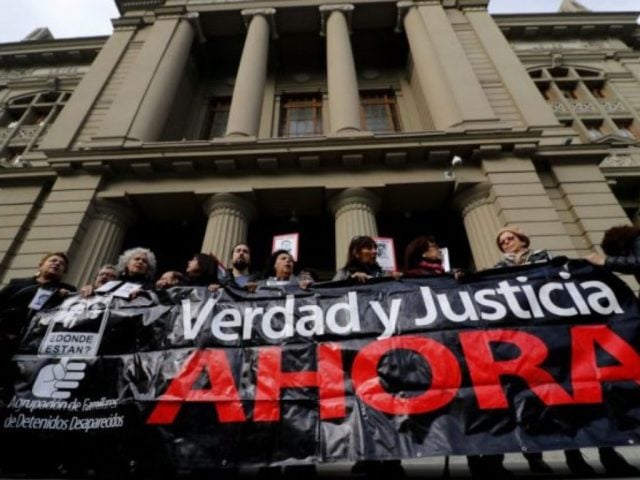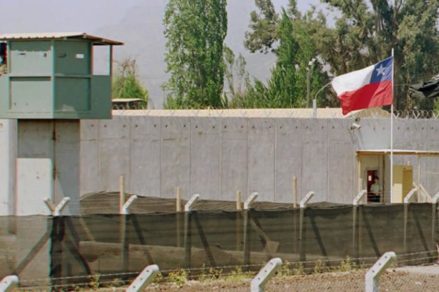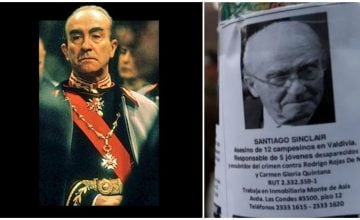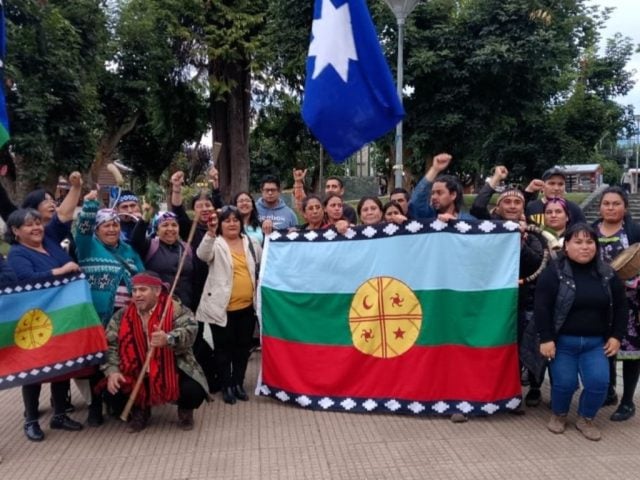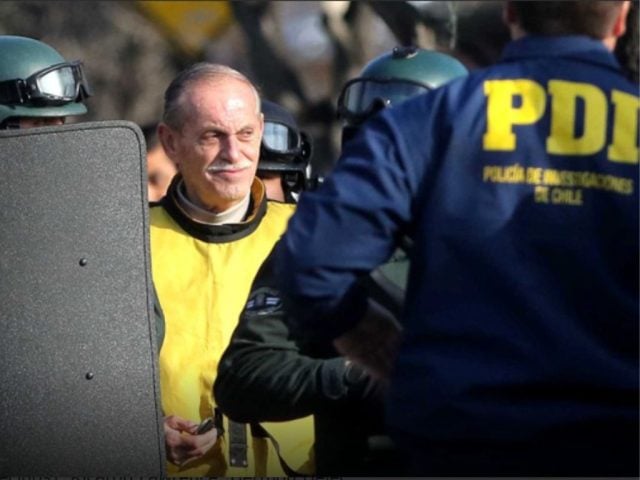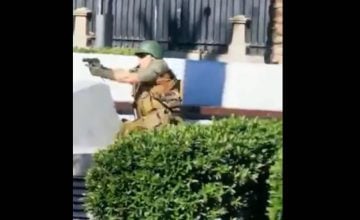Original article: Precedente histórico en DD.HH.: Suprema discute revisar o anular rebajas a condenados en casos de detenidos desaparecidos y ejecutados políticos
Historic Landmark in Human Rights: Supreme Court Reviews or Considers Nullifying Sentence Reductions for Cases of Forced Disappearances and Political Executions
In a significant step for human rights, the Supreme Court held its second public hearing on October 22, 2025, to discuss the compliance with the ruling issued by the Inter-American Court of Human Rights (IACHR) in the case «Vega González and others vs. Chile.» This ruling mandates the review or annulment of sentence reductions applicable via the statute of limitations in cases involving victims of forced disappearances and political executions during the dictatorship of Augusto Pinochet (1973-1990).
The hearing included families of the victims, representatives from human rights organizations, lawyers representing convicted former agents, and judiciary authorities, who all presented arguments addressing the plight of the victims of enforced disappearance and extrajudicial execution.
Background: IACHR Condemnation of Chile
In its ruling issued on March 12, 2024, regarding the «Vega González and others Vs. Chile» case, the IACHR declared the international responsibility of the Chilean State for violating Articles 8 and 25 of the American Convention on Human Rights and provisions of the Inter-American Convention on Forced Disappearance of Persons, impacting 44 people who were victims of enforced disappearance, and for violating judicial guarantees and protections of 5 individuals who were extrajudicially executed. Furthermore, the violations affected the personal integrity of their family members.
These violations stemmed from judicial decisions made between 2007 and 2010, during which the Supreme Court applied the measure of «partial statute of limitations» as outlined in Article 103 of the Chilean Penal Code, within criminal proceedings for crimes against humanity committed during the Pinochet military dictatorship.
As a result of this condemnation, the IACHR ordered the following comprehensive reparative measures:
(i) to review and/or annul reductions of sentences resulting from the unconventional application of the partial statute of limitations;
(ii) to align its internal legal framework so that the partial statute of limitations cannot be applied under any circumstances to crimes against humanity and serious human rights violations, and until this modification is made, conventionality control must be applied;
(iii) to provide psychological, psychiatric, or psychosocial treatment to victims upon request, or alternatively, to pay a specified amount as compensation;
(iv) to publish and disseminate this ruling and its official summary;
(v) to hold a public act of acknowledgment of international responsibility, and
(vi) to pay the amounts specified in the ruling as compensation for material and immaterial damages, as well as for the reimbursement of costs and expenses.
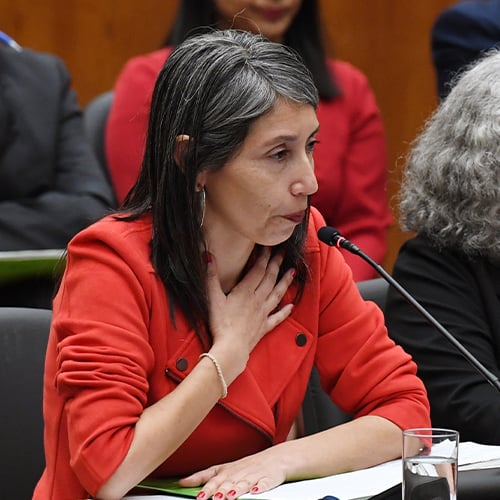
Lawyer Arguments: Justice Against Impunity
During the hearing, human rights lawyer Karinna Fernández, representing the families of several victims, delivered an extensive argument stating that the review of sentences does not constitute a new prosecution but rather a restitution measure mandated by an international court.
As reported by Diario U de Chile, the lawyer reminded that the IACHR ruling arose «from the failure of this Court to sanction those responsible for the executions and disappearances of 49 victims, including a 14-year-old boy.»
She contended that the application of the partial statute of limitations represented «a new form of impunity» for the victims’ families.
«This case is the effort to ensure that the victims never again have to confront the freedom of those responsible for the disappearances of their relatives,» she emphasized.
According to Fernández, the ruling does not imply reopening trials regarding guilt; rather, it aims to recalculate sentences established in a manner incompatible with international standards.
«Neither the Commission nor the Inter-American Court utilized the concept of fraudulent res judicata, as that is not the matter in question. What is discussed is the impunity created by the partial statute of limitations,» she explained.
Finally, she cited academic Guzmán Dálvora, who described the IACHR ruling as «a legal instrument for overcoming significant errors with two goals: restoring the rights of victims and reaffirming that internal politics do not hold the final word on human rights matters.»
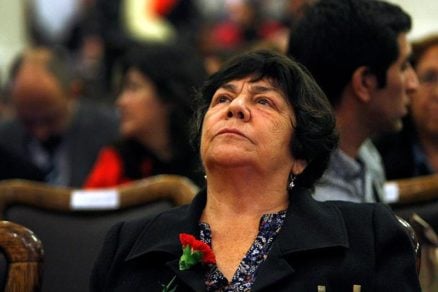
Alicia Lira on IACHR Condemnation of Chile: It’s «Truly a Moral Restitution»
In the view of Alicia Lira, president of the Association of Families of Executed Political Prisoners, the hearing represented a necessary process to advance justice.
Lira stated that the importance of the session was underscored by the fact that the victims’ lawyers could present their arguments, emphasizing «the legal and moral basis of what it means for us as families in such heinous crimes as ours, whereby the partial statute of limitations was applied.»
«It was even clarified how the manipulations and misinformation provided by the perpetrators’ lawyers misled people, including the judges who claimed that a new trial needed to commence to alter the convictions, which our lawyers clarified is not necessary to reassemble the trials, but rather to adjust the sentences by recalculating the years based on the partial statute of limitations and what should have been said,» she highlighted.
Alicia Lira is the wife of Felipe Rivera, a Communist militant kidnapped and extrajudicially executed, who is one of the 49 victims in the «Vega González and others vs. Chile» case, which includes the IACHR ruling against the State of Chile.
In a conversation with Radio y Diario Universidad de Chile, Lira recounted her experience participating in the Supreme Court hearing, stating, «When you suffer the assault on your home, on your yard, because they stormed my house, my two-meter-high gate, broke in forcefully, and took my partner, Felipe Rivera Gajardo, from bed at two in the morning, half-dressed, abducting him without knowing where he was taken, and even I followed the vehicles until I was exhausted… it is incomprehensible that such heinous crimes—kidnapping, assault, execution without due process—should warrant only five or ten years. They deserve the consequence established in international treaties for crimes against humanity.»
«Psychologically and morally, you are damaged as a result of the tragedy, but when you wait years and years for a sentence that does not align with the severity of the committed crimes, you are revictimized and carry this feeling of impunity,» she stated.
Against this backdrop, Lira asserted that the IACHR’s condemnation of Chile is «truly a moral restitution, to ensure that the impunity does not run so large, and it dignifies our relatives in the heinous manner they were killed.»
Regarding the ruling, the association’s president expressed hope that the highest court would heed the «moral and political weight» of the Inter-American Court’s mandate and recalled that the judicial institution «was complicit in these heinous crimes for 17 years.»
